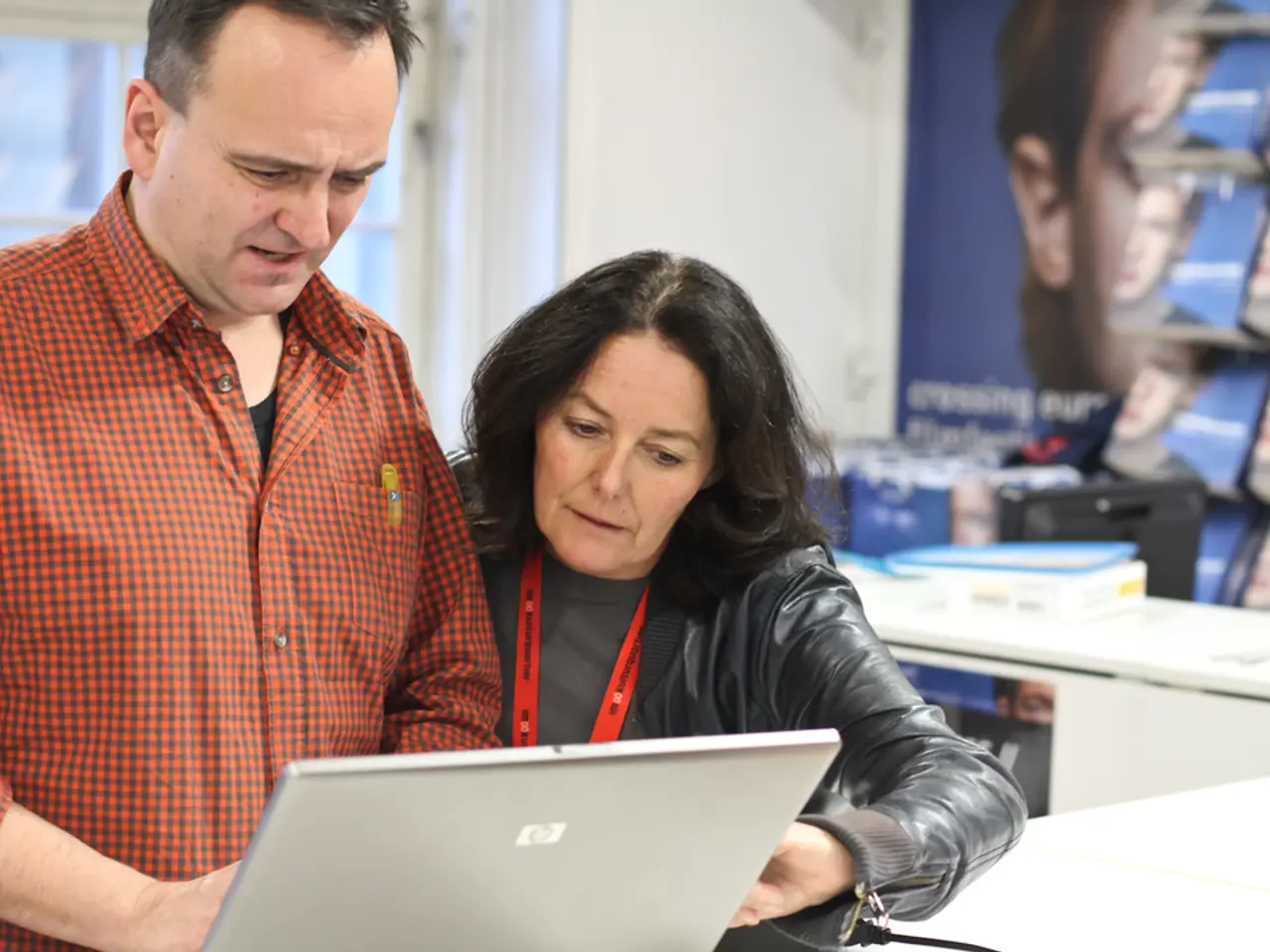Demand for advanced technological requirements in the administration of state disability services
In the realm of healthcare and social services, a call for change is echoing across the nation. The current IDD case management systems, built 15-20 years ago, are failing to meet the needs of the people they serve, providers, and agencies responsible for care and service.
These systems, primarily designed for recordkeeping, do not facilitate data-informed decision-making or meaningful conversations between caseworkers, providers, and clients. Hundreds of thousands of people interface with these case management systems daily, with billions of dollars provided in services nationally. Yet, they are cumbersome, time-consuming, and impede the ability of providers to fully support those involved in their programs.
Providers are frustrated with the technology, which is a significant barrier to delivering optimal care. The burden of basic tasks such as coordinating and documenting care, and sharing information, is overwhelming. As a result, payers are getting less value due to poor data access and coordination, potentially increasing costs and reducing value for those served.
The former Deputy Secretary of Health suggests that IDD case management systems should be a one-stop and single point of entry for all services, communications, and records, with appropriate permissions. This would streamline access to records for partner agencies and community-based organizations, and allow program participants to view and comment on their own record.
Two-way communication should be a feature, including secure messaging and portals for families and providers to collaborate and share documents easily. Critical incident reporting should be included, allowing for tracking of claims data, alerts for critical incidents, and the ability to include corrective action plans.
An ideal IDD case management system should also include person-centered care planning with AI-enabled tools for personalized care plans. Unlike basic electronic health record (EHR) systems, program participants are typically unable to comment on notes in their records, which could improve accuracy and enable better outcomes.
Population health analytics tools are necessary for aggregating and analyzing data for value-based care arrangements and community-based interventions. The system should provide compliance support with features aligned with a state's licensing requirements and CMS guidance.
Recent cuts to Medicaid may make it more difficult for states to address the needs of the IDD community. However, a modern system can reduce administrative burden, eliminate duplicative work, and improve accountability, ultimately saving money while enhancing care quality.
A more modernized case management system could significantly improve the care coordination, service delivery, and communication for individuals with IDD. The former Deputy Secretary of Health and Assistant Secretary for the Office for Citizens with Developmental Disabilities in Louisiana has witnessed firsthand the limitations of outdated case management systems for individuals with intellectual and developmental disabilities (IDD).
While there is no specific mention in the search results of an organization or institution aiming to develop and implement a modern IDD management system for guardianship management within the next decade, the Monitoringstelle UN-Behindertenrechtskonvention at the German Institute for Human Rights oversees implementation of the UN Disability Rights Convention in Germany, which involves state-level processes related to disability rights.
The need for modernized IDD case management systems is clear. Simplified field case management tools are needed, including mobile-friendly tools for submitting care plans, scheduling visits, documenting encounters, and sharing records. By addressing these needs, we can ensure that the IDD community receives the care and support they deserve.
Read also:
- Understanding Hemorrhagic Gastroenteritis: Key Facts
- Stopping Osteoporosis Treatment: Timeline Considerations
- Tobacco industry's suggested changes on a legislative modification are disregarded by health journalists
- Expanded Community Health Involvement by CK Birla Hospitals, Jaipur, Maintained Through Consistent Outreach Programs Across Rajasthan








